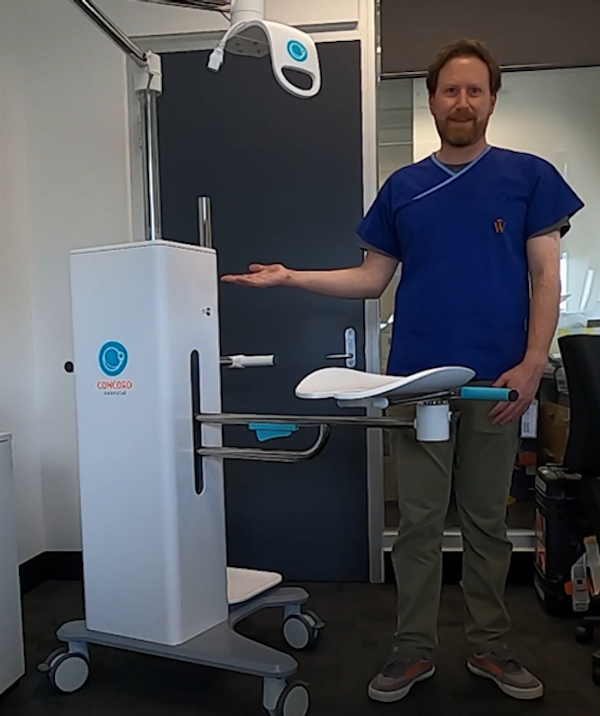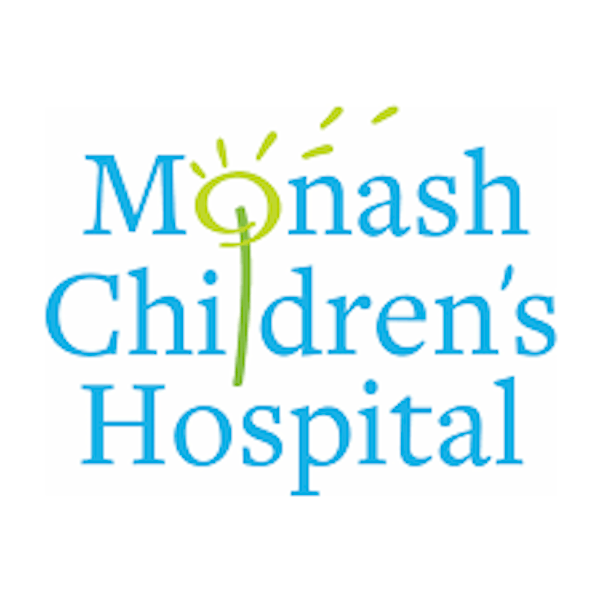Share this article on:
Concord Birth Trolley going "down-under"
After 8 weeks traveling the oceans, the Concord Birth Trolley® safely arrived at the Newborn Intensive Care Unit at Monash Children’s Hospital in Melbourne. In collaboration with the Richie Centre, Monash will be participating in clinical research to investigate the benefits of Physiological-Based Cord Clamping (PBCC) in newborns in need of support. Monash is the first hospital in Australia to be implementing the Concord Birth Flow®.
Monash Children’s Hospital has been caring for children for more than 100 years. It is one of Australia’s leading children’s hospitals and is part of Monash Health, Victoria’s largest healthcare service and one of only four accredited Academic Health Science Centres in Australia.
The Ritchie Centre at Hudson Institute of Medical Research is the principal research partner of Monash Children’s Hospital and Monash Women’s Services at Monash Health. The centre, led by Prof. Stuart Hooper, aims to improve the health of women and children through innovative research. One of the key topics of their research involves the timing of umbilical cord clamping and its effect on the physiology of neonates, especially during their transition at birth. Preclinical studies coordinated by the Richie Centre, have laid the foundation of today’s knowledge that delaying cord clamping until ventilation onset, improves cardiovascular function of newborns at birth [1]. This is Physiological-Based Cord Clamping or PBCC.
With the acquisition of the Concord Birth Trolley, sponsored by a CDH Australia research grant, Monash will be participating in the PinC trial [2], a multicentre RCT, initiated by Philip DeKoninck from Erasmus MC, to investigate the benefits of PBCC in newborns with Congenital Diaphragmatic Hernia (CDH). Primary Investigator at Monash, Calum Roberts: “The Concord Birth Trolley allows us to perform this valuable research to potentially improve the way we look after these babies. I really hope we can improve outcome for these babies together.”
In this video Calum Roberts explains how the Concord Birth Trolley will enable clinical research & treatment of babies with CDH:
Next to Erasmus MC and Monash, Radboud UMC Nijmegen, Mannheim University Hospital, Bonn University Hospital, UZ Leuven and University Hospital Graz are participating in the PinC trial. Monash will also be participating in the ABC3 trial, initiated by Prof. Arjan te Pas from Leiden University Medical Center [3].
The Concord Birth Trolley is commercially available in a number of countries, including Australia, and has ARTG inclusion. For more information, see concordneonatal.com or contact us at: join@concordneonatal.com
- Bhatt S, Alison BJ, Wallace EM, Crossley KJ, Gill AW, Kluckow M, te Pas AB, Morley CJ, Polglase GR, Hooper SB. Delaying cord clamping until ventilation onset improves cardiovascular function at birth in preterm lambs. J Physiol. 2013 Apr 15;591(8):2113-26. doi: 10.1113/jphysiol.2012.250084
- https://clinicaltrials.gov/ct2/show/NCT04373902
- https://clinicaltrials.gov/ct2/show/NCT03808051


